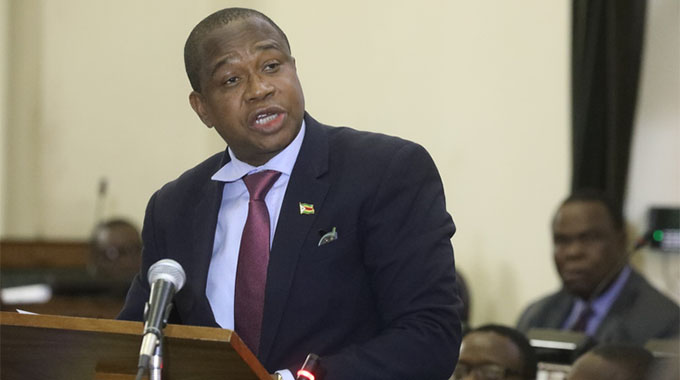Source: TSP reforms to spur economic growth | The Herald October 9, 2019
Africa Moyo Deputy News Editor
Government has said economic reforms under the Transitional Stabilisation Programme (TSP), including re-engagement and investment promotion efforts will put Zimbabwe on a firm pedestal for economic growth from next year onwards.
The economy is anticipated to grow by 4,6 percent next year, driven by improved foreign currency availability and a decent rainfall season in the 2019/2020 summer cropping season.
This was said by Finance and Economic Development Minister Professor Mthuli Ncube in the 2020 Pre-Budget Strategy Paper released this week.
He said good rains will result in better agricultural yields and respectable dam levels for electricity generation, which would be channelled towards the productive sectors of the economy.
“Implementation of reforms outlined in the TSP is on course, with notable milestones on fiscal consolidation, monetary policy restoration, liberalisation of the foreign exchange market, structural and governance reforms, re-engagement, investment promotion and support for the productive sector,” he said.
“These reforms present a strong foundation for economic rebound in 2020 and beyond.”
Prof Ncube said next year, the economy is projected to “turn around building on the success of the ongoing reform initiatives” and premised on the broader assumptions, including a recovery in aggregate demand, improved foreign currency availability and improved macro-fiscal stability and business confidence.
“As a result, the economy is projected to grow by 4,6 percent in 2020,” he said.
Next year, global growth is projected to increase to 3,5 percent from an expected 3,2 growth this year.
The expected improvement is mainly spurred by accelerating growth in emerging markets and developing economies, which are off-setting an anticipated slowdown in advanced economies.
But the trade war between the United States and China, as well as Britain’s expected departure from the European Union (EU) bloc, commonly known as Brexit, remain major sources of uncertainty in advanced economies.
Prof Ncube said Zimbabwe’s economy has not been doing well this year because of “severe exogenous shocks related to climate change caused by drought and cyclone, which compromised agriculture activities and electricity generation with extended effects on other sectors, all forcing the economy into recession”.
Erratic rains in the previous cropping season have put pressure on Government to import more food for the population after a bad season, as it now has to balance foreign currency requirements with other critical sectors such as energy.
The 2020 Pre-Budget Strategy Paper is designed to facilitate discussions on policy direction for the 2020 National Budget, consistent with the objectives of the TSP and aspirations of Vision 2030 of achieving an upper middle income society.
Prof Ncube said the National Budget thrust was informed by progress made on implementation of various reforms under the TSP, including policy gaps that require attention during the forthcoming year.

COMMENTS